Penguin 4.0 has been a long time coming and Google finally announced it was here in late September, after months of speculation. Now it’s been a month since the update, we’ve been able to analyse the changes and summarise the effect the update could have on websites, and we’ve seen positive organic uplift across a wealth of our clients. If you have suffered a penalty, and you’ve been working hard to rectify it, this update could work in your favour. Here’s everything you need to know about Penguin 4.0:
Penguin is now real time
What this means is that Penguin’s data is refreshed in real time as pages are crawled and indexed unlike previous versions that required periodic updates, generally every 12 to 24 months. Historically, affected webmasters had a painful wait for the next update to see if the recovery work they had done was sufficient. For brands, this means that if any negative impact is seen from Penguin going forward, the chances of fixing the problem in a reasonable amount of time are greatly increased as long as the issue is identified and action is taken promptly.
Penguin is now part of the core algorithm
Like Panda, Penguin has become part of Google’s core algorithm. Both Panda and Penguin started their lives as ‘bolt-on’ spam filters but Google now trusts these signals enough to bake them into its core algorithm. What this means for brands is that Google will no longer be making announcements or comments about any future updates to Penguin. A key takeaway here is to ensure that somebody is actively monitoring organic traffic levels and looking out for unusual patterns – it will not be sufficient to check traffic levels around the dates of Penguin announcements as these will cease to exist.
Penguin is now more granular
Google has said that instead of affecting a whole site, Penguin will now be more granular. When asked for clarification on this, Google said that it does not mean it only affects pages. We are interpreting that to mean that it could affect individual pages or sections of a site. Like the takeaway above, it’s important that somebody is actively monitoring organic traffic. Segmentation is also important – be smart about how the data is sliced and diced to reveal insights. Making use of analytics features such as content groupings is a good start as it will show traffic levels across groups of pages as opposed to individual URLs, although this is also important. Use Google Search Console and rank tracking software to look for page and keyword level issues.
Penguin now devalues bad links and does not demote
Probably the biggest surprise about Penguin 4.0 is that it is now devaluing any bad links and not demoting the whole site. The original Penguin, which was launched back in 2012, changed the game because no longer were bad links just ineffective, they could actually harm your site. This change means that any bad links will now be ignored, meaning that link-based negative SEO attacks may become a thing of the past. That being said, brands should still be actively monitoring their external link profiles and keeping disavow files up to date as bad links can still lead to manual actions by Google.
Over the past few weeks, we’ve been able to see the effect it’s had on our clients’ sites. Many of our clients have seen significant positive gains as a result of the update, please find below a few examples demonstrating uplift in organic visibility:
Online fashion retailer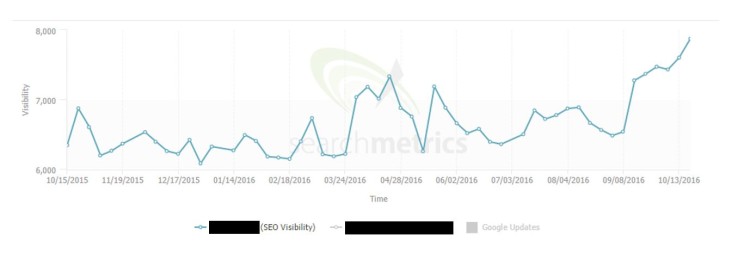
Office supplies retailer
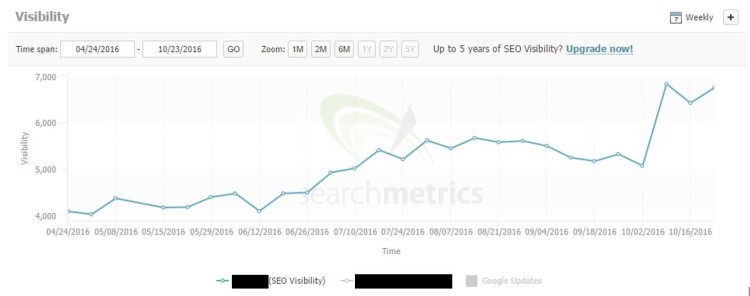
Wedding stationery supplier
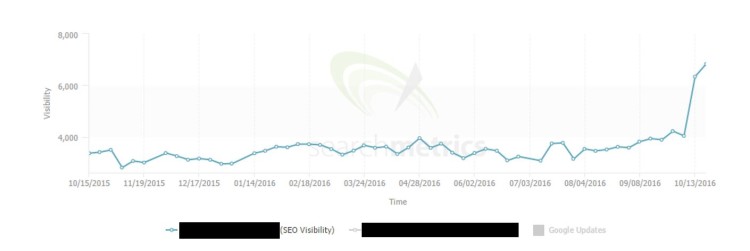 Luxury travel company
Luxury travel company
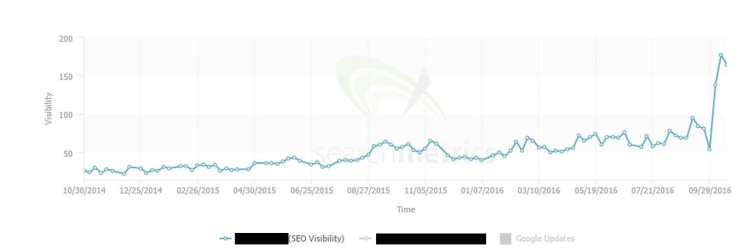
Shed and log cabin retailer
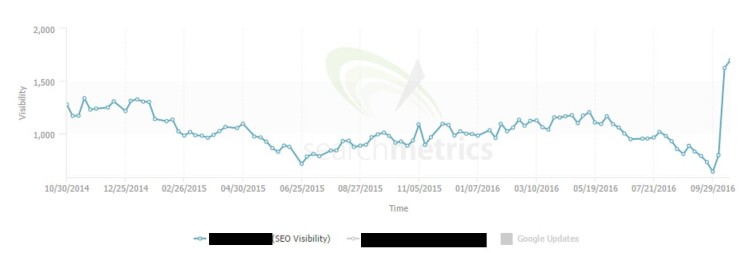
If Penguin 4.0 hasn’t worked in your favour, please contact us to discuss and our specialist team will be able to help with next steps.


